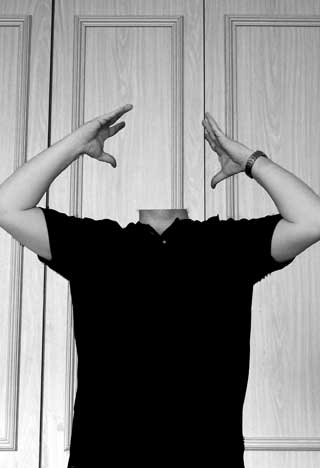Feature Article
Till It's Gone

"You don't know what you've got till it's gone." Not sure who said it first; it probably wasn't
Joni Mitchell although she said it to a lot of people. But what
does this have to do with fitness and
The Planet?
Most people are not in the best shape of their lives. That's not an indictment; it's just statistically very unlikely that any given point
in time is the "best" time for anything. Athletes will typically reach a physical peak in their 20s, while strength usually peaks
in the 30s. For the average person, though, fitness levels can change significantly over time, up or down. Sometimes, a downswing can happen
quickly; for example, when a life event causes drastic changes in activity levels, diet, sleep, and/or stress levels. Having a child can
certainly do it. So can having five cats, especially if they're bad cats. Changing jobs or careers can do it. Starting or ending a
relationship is another potential short-term health-destroying event.
When these kinds of things happen, the health changes are usually pretty obvious. And that can bring on a "don't know what you've
got till it's gone" revelation. We miss our former self, the one who was perhaps slimmer, faster, stronger, more energetic, and
just generally in better health.
More often, changes are slower. So slow as to be almost unnoticeable. One day we finally take notice of the changes ... on the scale,
in the fit of clothing, a much slower 5k time, or the lost ability to do a pull-up. While these things can go unnoticed for years, they're
always there to be acknowledged because they're all measurable. But what about the unmeasurable traits? Things like energy levels, sleep
quality, appetite, aches and pains, bathroom operations (how's that for putting it delicately?), postural degradation, and more. These things
can decline slowly over time in a way that leaves people unable to remember what it felt like to be fit and healthy. Instead, they think
their current state is "normal" and they don't know what they had though it's gone. And so they continue their slow decline as if
it's inevitable. It's so sad!

But there's another way to interpret the "till it's gone" line: instead of being about not appreciating the good things, it can be
about discovering the bad things. If you had a thorn in your foot for so long that you accepted it as being just the way it is, and then
Androcles removed it,
you'd realize what you had now that it's gone and feel much better for it.
While it may seem unbelievable that a person would just live with the thorn all that time, thorny problems can develop so slowly as to
be unnoticed. Rounded shoulders, big waistlines, and shuffling gaits don't happen overnight.
So how can you make the bad things you got be gone so you can know about them? (Apologies to any English majors for that sentence. And
sympathies for being an English major. Boom!) The simple-but-not-easy answer: make big lifestyle changes for a while and see what happens.
Give up grains or dairy or sweets or all of them. (The
Whole30
can get you going.) Get on a smart, suitable training routine (giving up a sedentary lifestyle) and stick with it. How long? 30 days
is the usual baseline for these kinds of things. 21 days would be an absolute minimum. But make sure to be consistent. This is not
the time for occasional "cheat" days.
You may find that you have nagging pain, low energy, poor digestion, allergies, or other problems that aren't "normal" at all.
You won't know what you've got till it's gone.
Be seeing you.
-gary